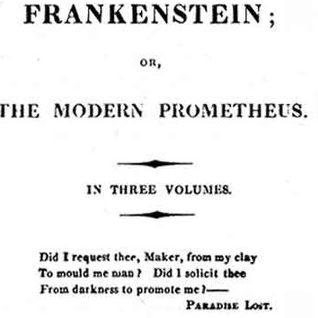
Saint Patrick’s Day, March 17, 2018, provided an interesting effort to drive the snakes out of politics. Chris Wylie, a software wizard previously working for Cambridge Analytica (CA), provided insight and details associated with applied psycho graphics — specifically applied to impact voters and elections. A “must-read” description of his journey in the U.K.’s Guardian, is the catalyst for this blog post. “Cambridge Analytica is ‘Chris Wylie’s Frankenstein,'” says a friend of Wylie’s in that Guardian article.
Let’s put two key phrases from The Guardian together to get a sense for the challenge we put to all emerging technologists: “he was 24 at the time. … He thrilled to the intellectual possibilities of it. He didn’t think of the consequences.” Chris’s “strategic brain, his attention to detail, his ability to plan 12 moves ahead – it is sometimes slightly terrifying to behold. Dealing with someone trained in information warfare has its own particular challenges, and his suite of extraordinary talents include the kind of high-level political skills that makes House of Cards look like The Great British Bake Off.”
It may be that Cambridge Analytica could be in the same position without Chris’s technical contributions. They may have worked their magic without using Facebook data. It may be that their efforts did not contribute critical success to the Brexit and Trump election outcomes. It could be that they have no contractual/technical connection to St. Petersburg University, Lukoil, and from there to Putin. But it is impossible for Chris Wylie to ignore these possible connections and the implications.
“Why would a Russian oil company want to target information on American voters?” Chris asks in the article. Cambridge Analytica claims to have 4000-5000 data points on 230,000,000 U.S. adults. As with many corporations, Cambridge Analytica works for their customer, not for a country, or for specific ideals — at least in theory. Robert Mercer, a major Trump, Cruz, and Brexit backer is reported to be one of the financial backers for Cambridge Analytica. Might CA work for candidates/issues opposed to their stakeholder’s investments and ideals? Perhaps. But they would not work in conflict with existing customers, so trivial contracts covering the next decade or two of elections could pretty well cover that without creating any challenge to their “for-hire” assertions. A key message of all of this for emerging technologists is that the company may have an agenda, customer, or key stakeholder who has an agenda you might not like. The same issue emerges when you look for working for a defense contractor or a medical institution that applies religious principles that differ from your own. Companies that are strictly “non-biased” suppliers can be applying their technology for customers where you disagree with their objectives, business, principles, etc. Part of technologists’ job decisions, and ongoing ethical considerations, need to take these possibilities into account.
Chris Wylie’s Frankenstein is a cautionary tale, as was Mary Shelly’s Frankenstein. It is important to realize that Shelly’s “Monster” was actually a very caring, and lonely construct, viewed as a monster by the mobs who were threatened by this “person.” Frankenstein is actually the name of the scientist/creator, who had no evil intentions. It is the case that our creations can escape into the real world, and when they do, they may serve unintended masters and missions. Vivisectionists of the 1800s had limited impact on the global social fabric. This is not true of the big data, artificial intelligence, social-media confabulations we create today.
I have tremendous empathy for Chris’s situation. One of the most interesting jobs I was offered out of college was to work for the “White House Office of Telecommunications Policy” under Richard Nixon. I almost ended up there, helping to formulate wire-tapping policy for U.S. citizens (which I found out later was high on the Telecommunications Policy Office’s priority list.) Today I could find more technical but related jobs at NSA, Google, Facebook, Amazon, Microsoft, IBM or others. Each has it’s own spin, objectives, customer base, and impact on society. Most of these have many diverse roles, areas of innovation, and no evil intent (other than what cut-throat competition can engender.) Today, I could grab a set of big-data tools, AI tools, or other data-sets and set off to change the world. I would have the best of intentions. I might even have the competence and opportunity to succeed. And you might also be able to succeed.
Chris Wylie’s Frankenstein should give us cause to pause. There are really neat ideas and applications to be pursued. These have many implications and social effects. The same tool I develop to help cure cancer might be applied to cause cancer, to help depressed kids might be applied to turn them into terrorists, and the list goes on. Please do cure cancer and help kids to become healthy, this is the power that technology can give us. But also, watch for “the monster” — it has seeds in almost every thing we do.






 JOIN SSIT
JOIN SSIT